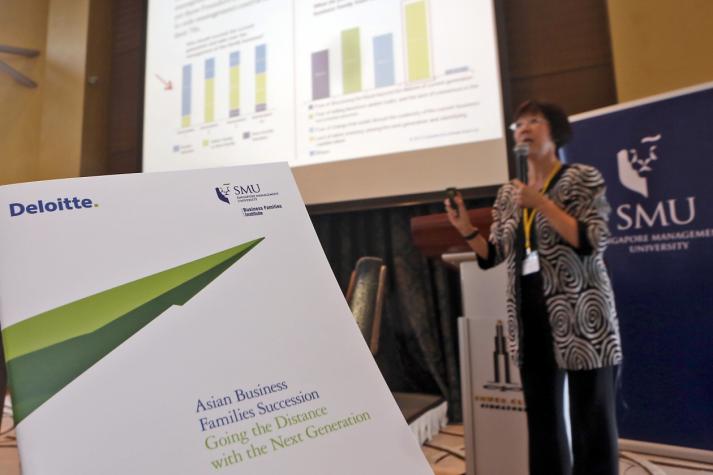
Jamie Lim recalled how her dad and founder of furniture retailer Scanteak tried to lure away from her fledging Hollywood career using a business class air ticket from Los Angeles to Taipei and a sumptuous meal at a fancy Japanese restaurant lasting two hours – the kind of lifestyle she could not afford with her job marketing movies.
“I was trying to figure out what my dad was up to,” recalls Lim of the incident some 10 years ago. During the dinner, her father Lim Pok Chin, threw down the gauntlet. “What if you have a business in which you can make a difference?”
Knowing she could only make a limited impact as a studio executive, she accepted her dad’s challenge to go into the family business. Since joining Scanteak in 2005, Lim has helped expand the company’s presence across the region, while picking up a slew of marketing and branding awards along the way.
More interestingly, Lim’s mentor in the company was not her father, but a loyal employee who had worked at Scanteak for about two decades. According to a study of business families across the region by Business Family Institute (BFI) of the Singapore Management University (SMU) with the support of Deloitte Southeast Asia, Lim’s situation is not the exception.
More than four out of every five, or 82% of the respondents were in favour of employing non-family professionals to help mentor the next generation in critical roles. These outsiders were also viewed by family businesses as critical players in other functions such as the selection of new leaders.
“Don’t short-change your advisors. You always need a different set of lenses to see objectively,” explains associate professor Annie Koh, academic director of BFI, which was formed in August last year.
“Compared to the family businesses in the US and Europe, those in Asia are still in their infancy,” says Koh. “There are also limited research data and resources available in this part of the world. The knowledge that we have been able to gather from this pioneering study is going to be very valuable and insightful to Asian families, and will facilitate openness and learning, knowing that they are not alone in wanting more developmental platforms to facilitate succession,” says Koh, who is also SMU’S vice-president for business development and external relations.
In all, responses from 83 families were used in the study. The three most common nationalities of the families who took part were Singaporean, Thai and Indonesian. Responses also came from Malaysia, Vietnam, Myanmar, China, Japan, the US and Europe. More than half, or 52%, of the family businesses already involve the second generation. The trade include food and beverage, hospitality, manufacturing, transport and logistics.
Issues surrounding succession-planning are always at the forefront of the family businesses. Take Neo Tiam Boon, CEO of TA Corp, which deals with construction and real estate. His elder brother now chairs the company, which was founded by their late father. Aware that his brother’s management style was “dictatorial”, Neo took nearly a year to decide to join the company.